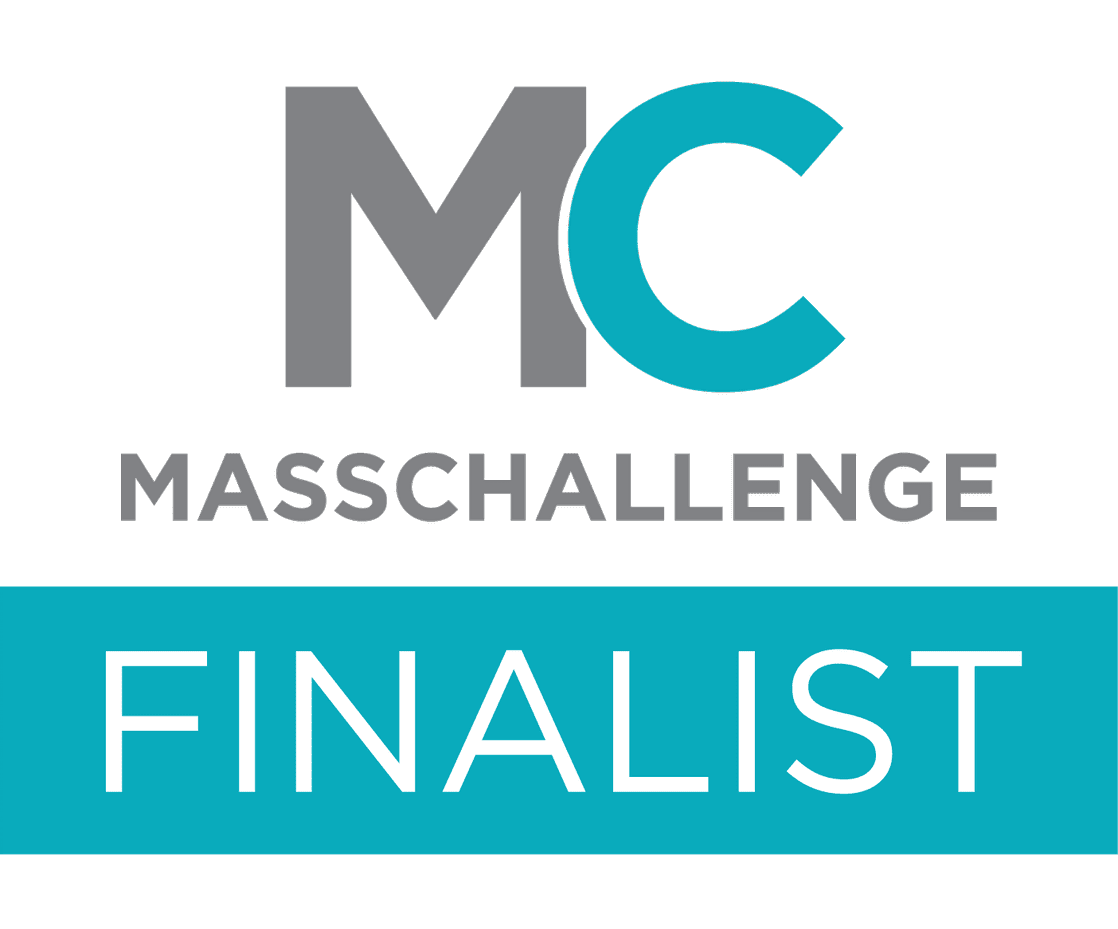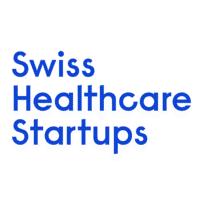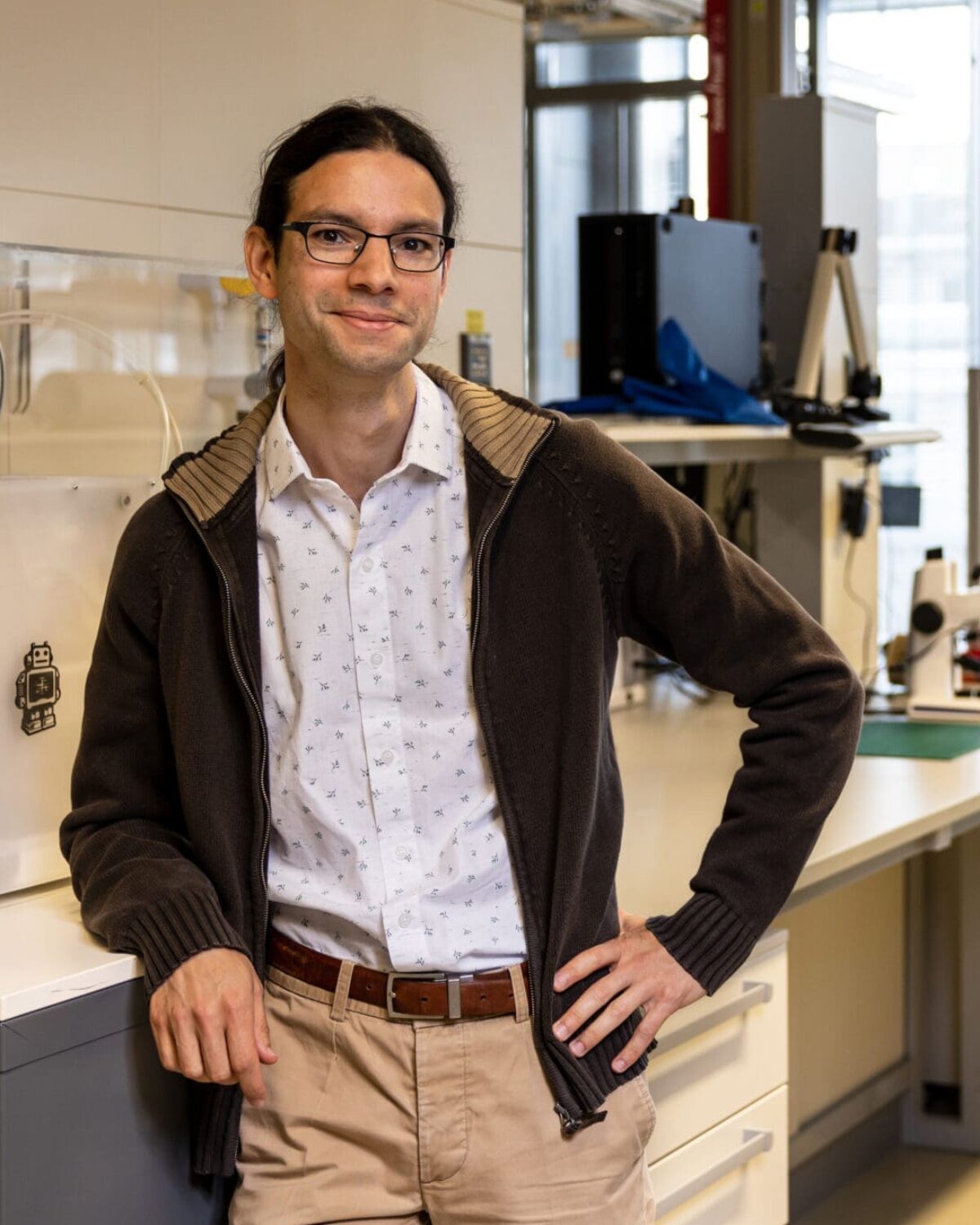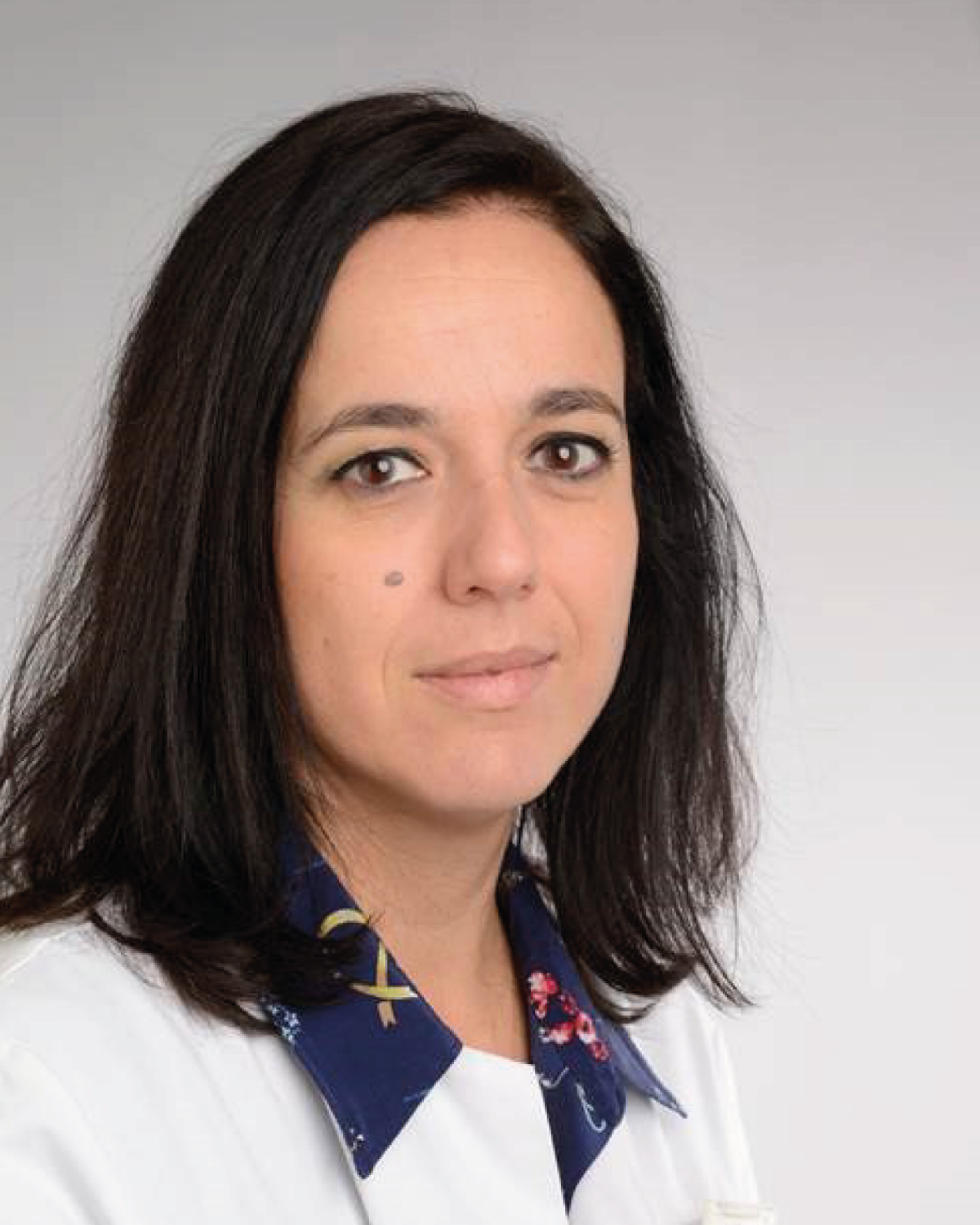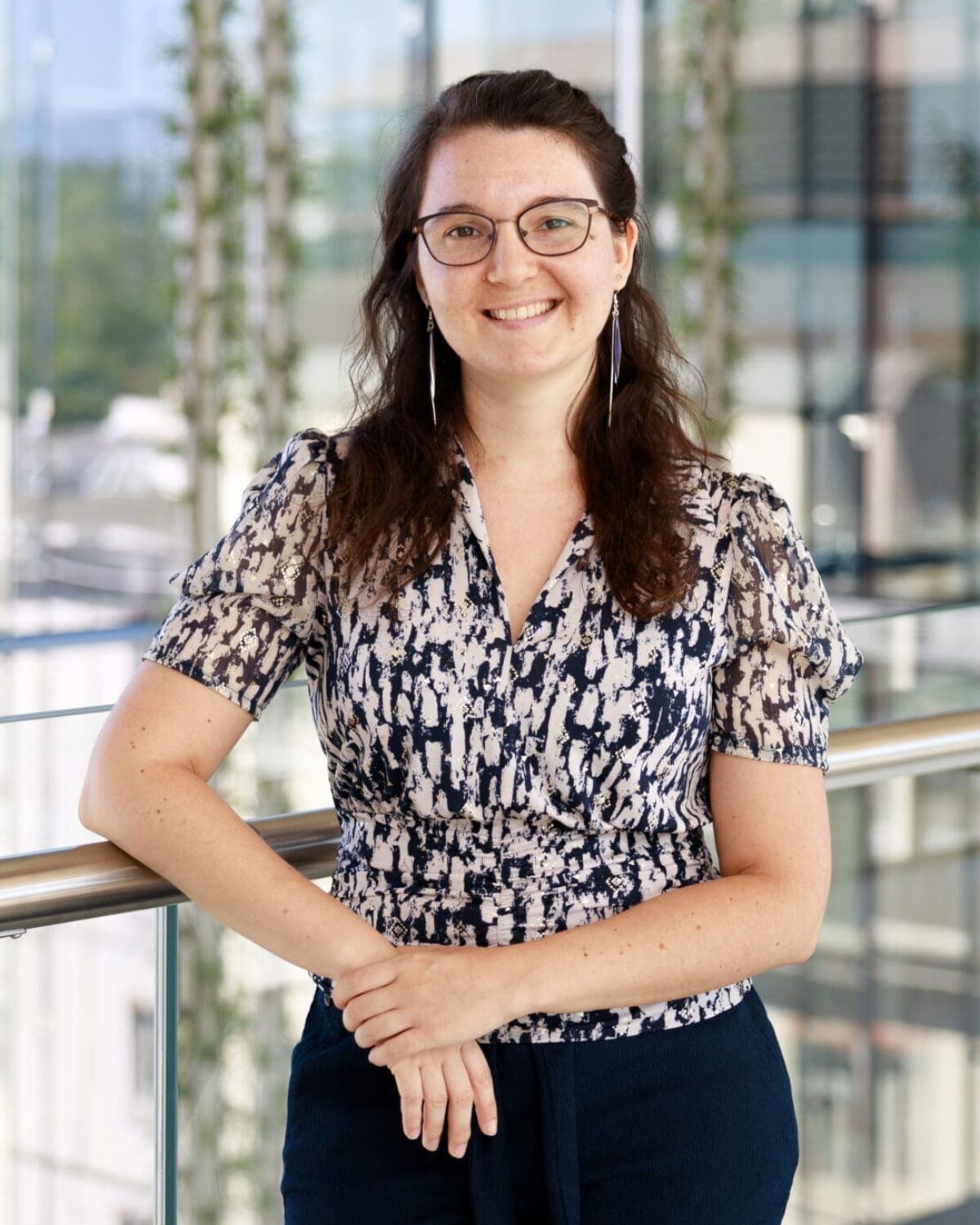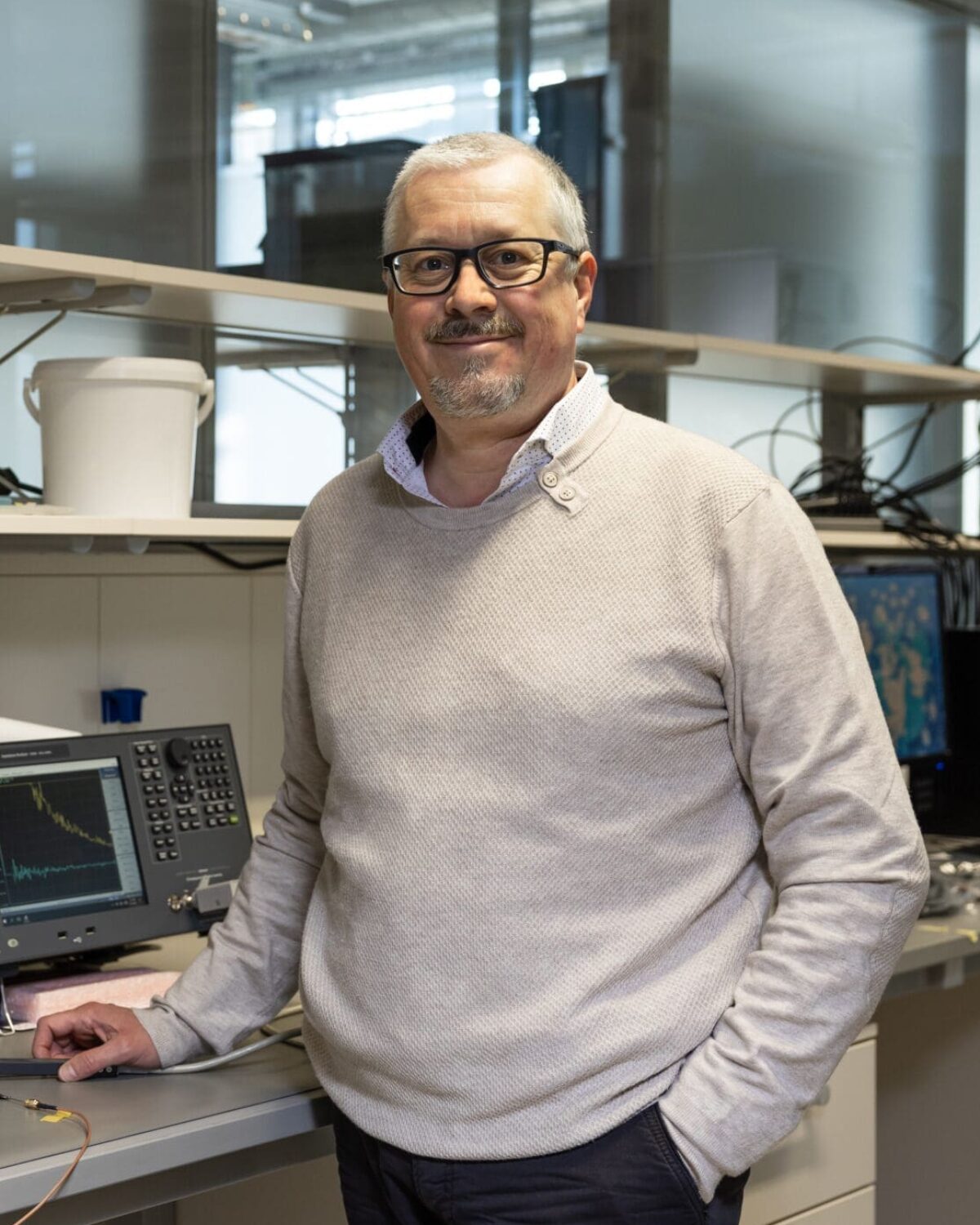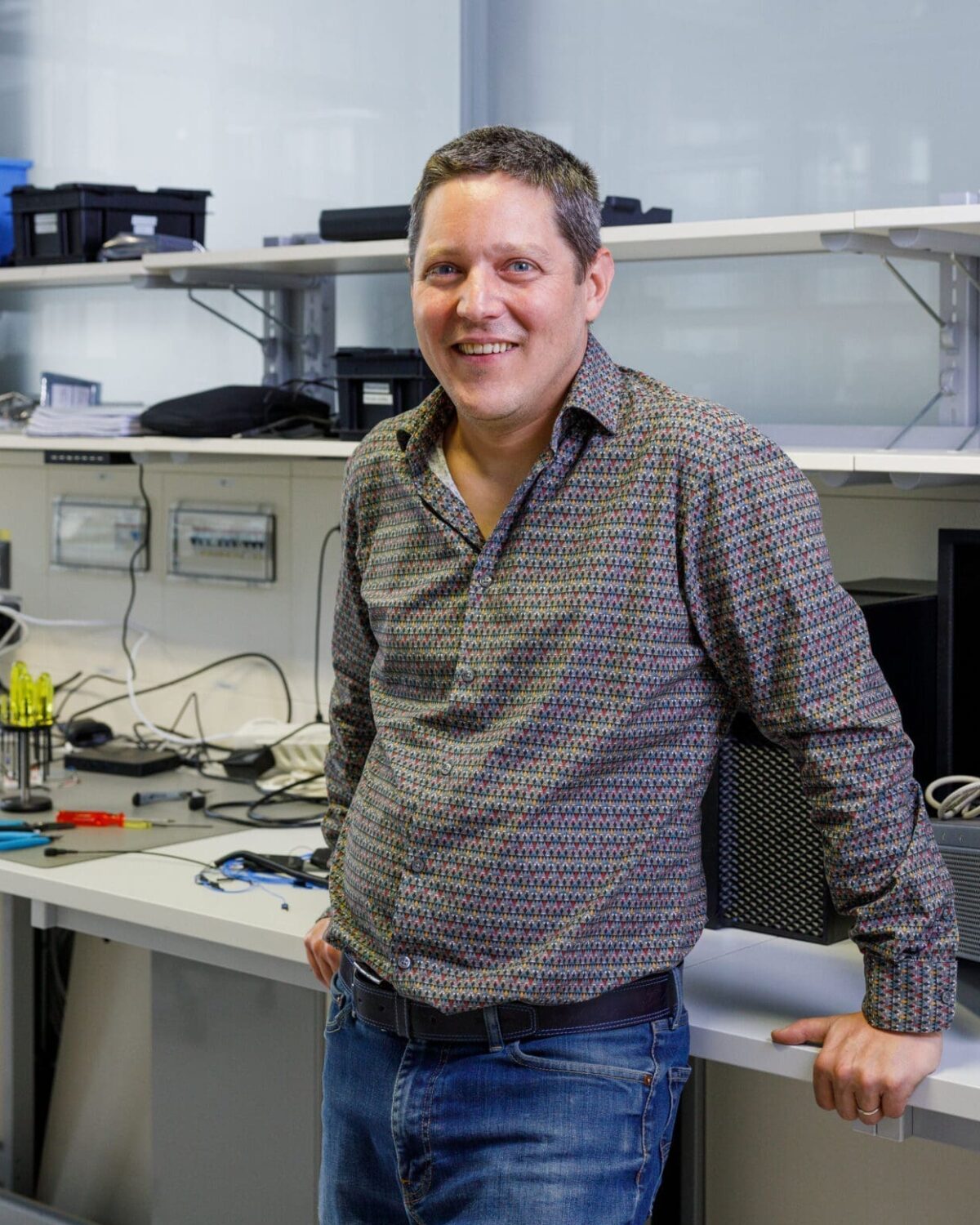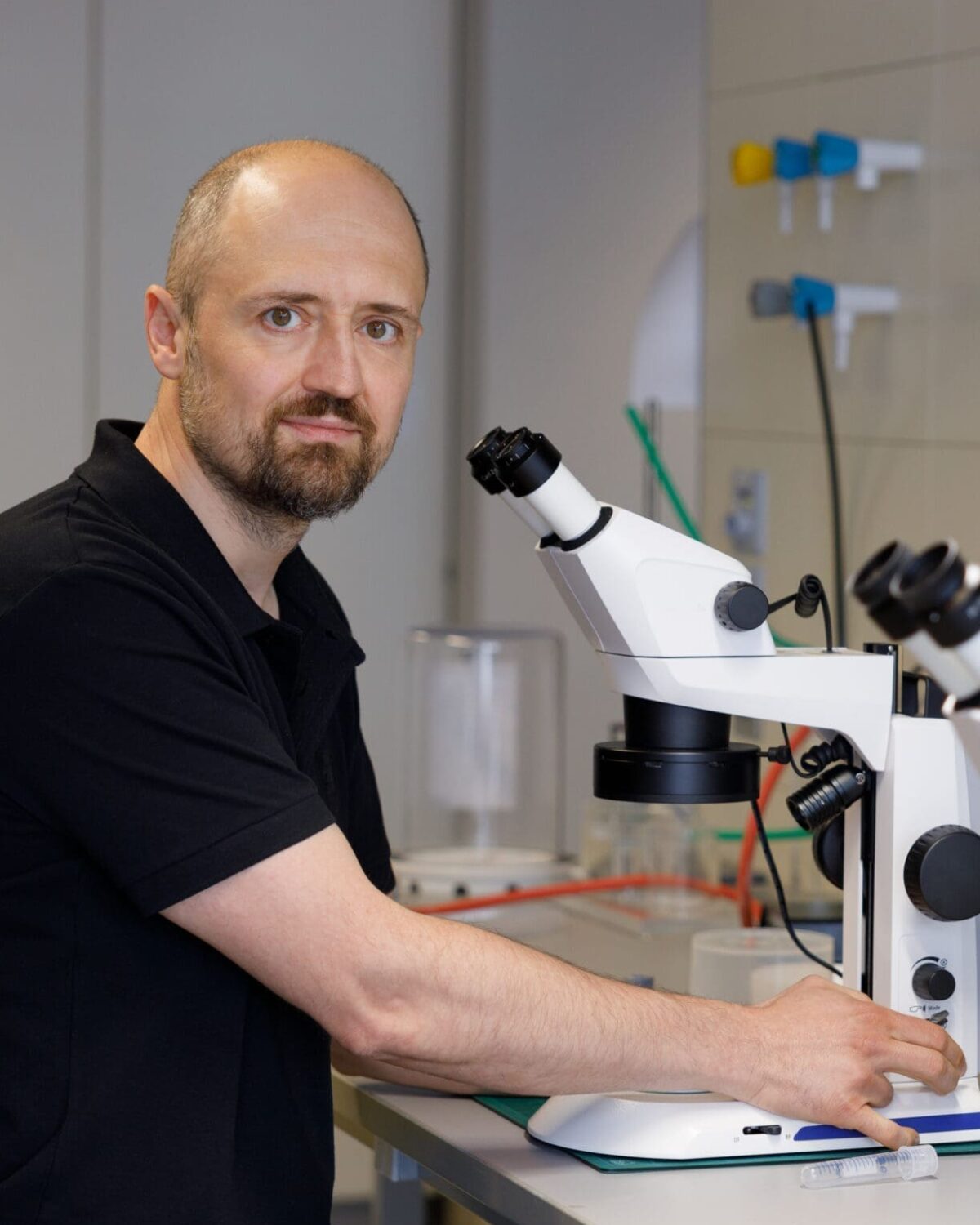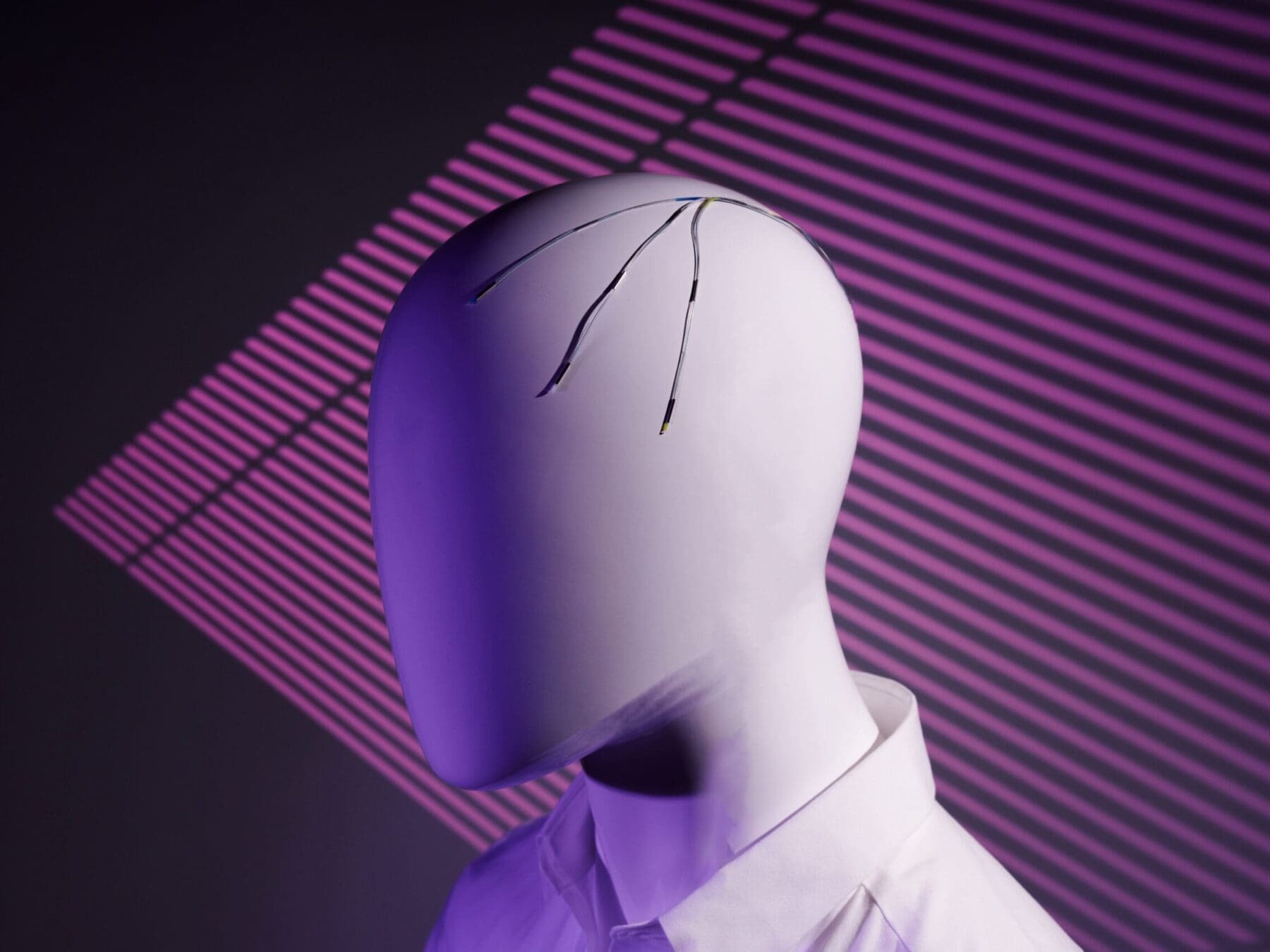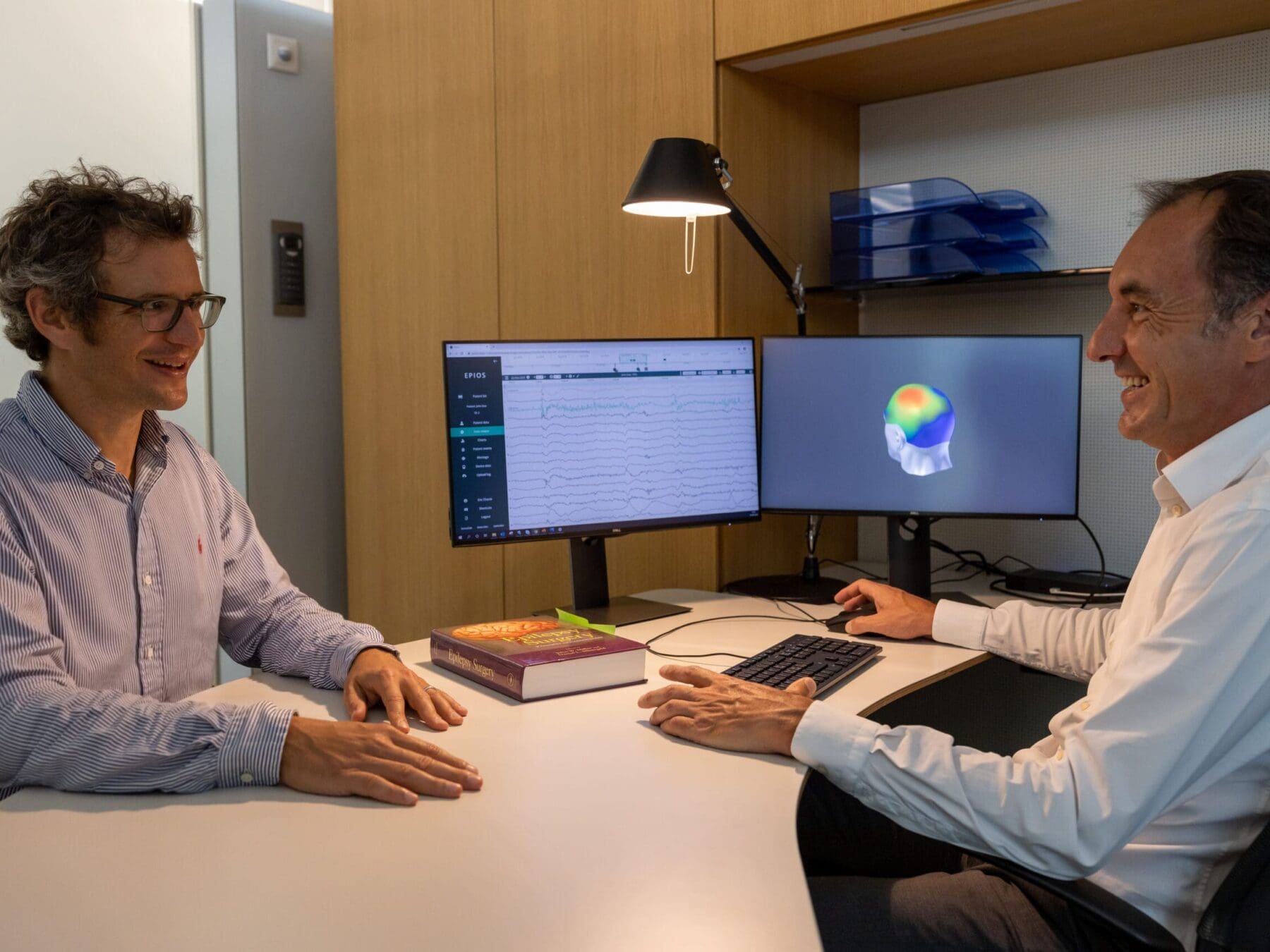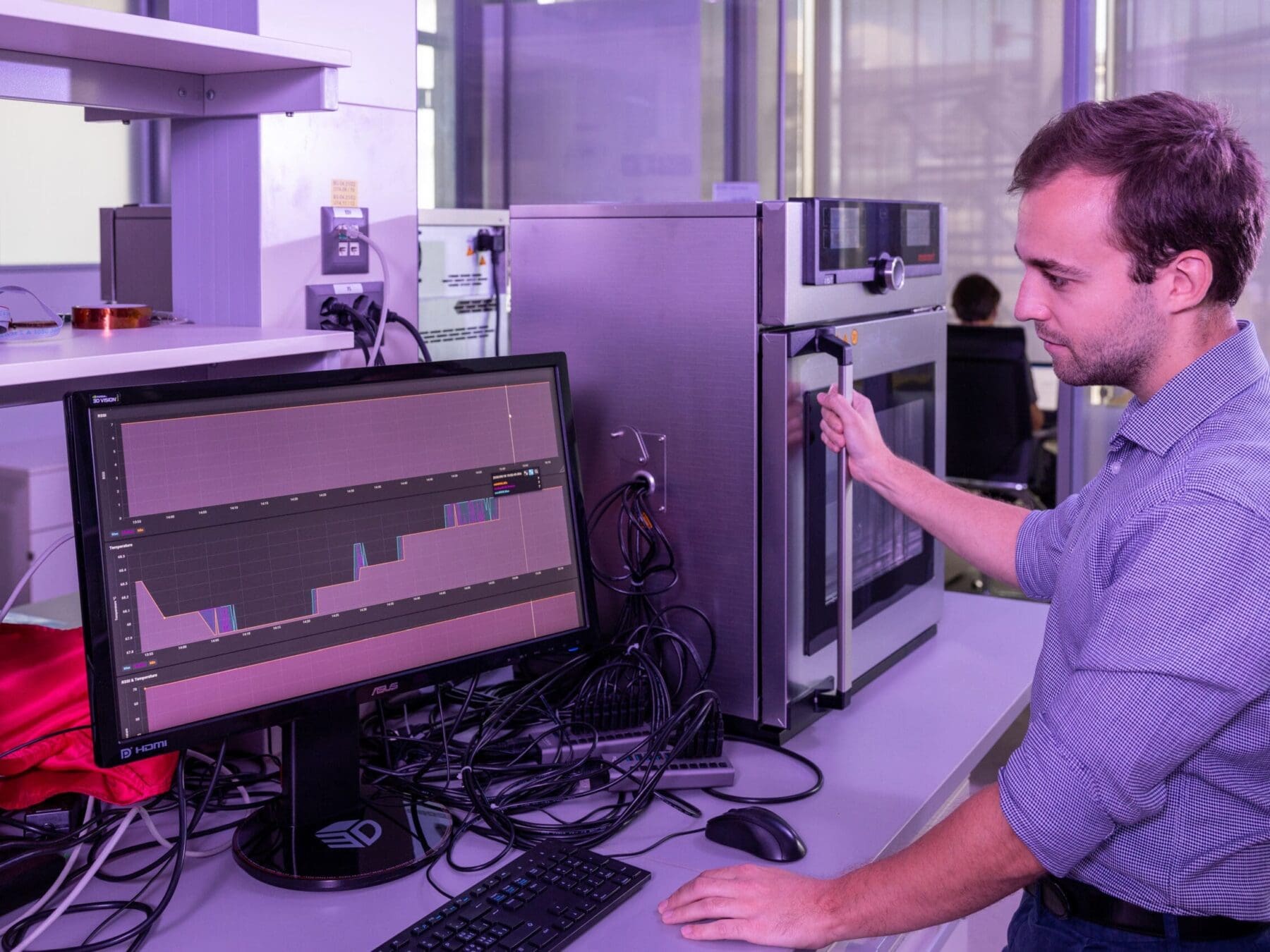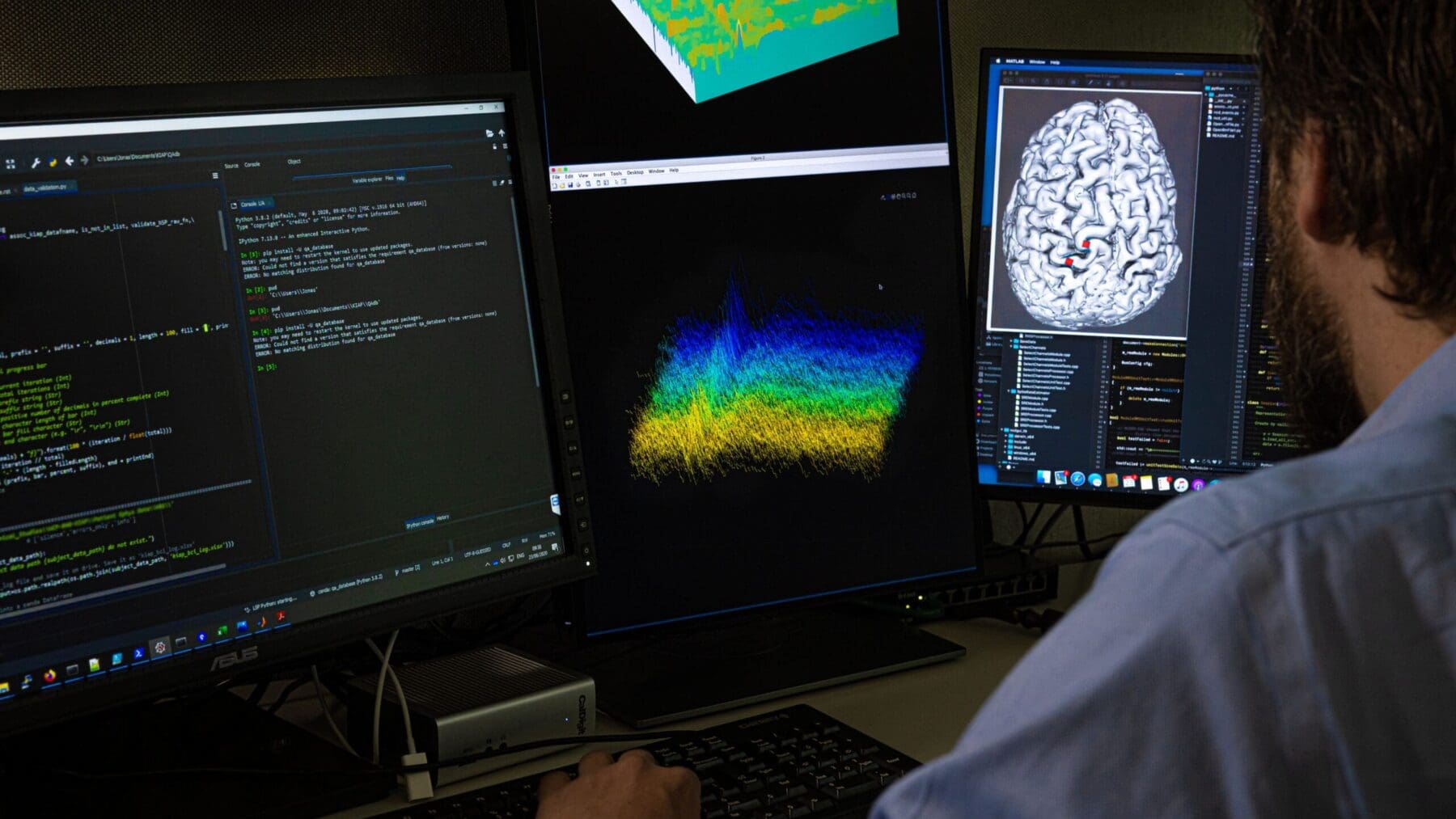Epios™
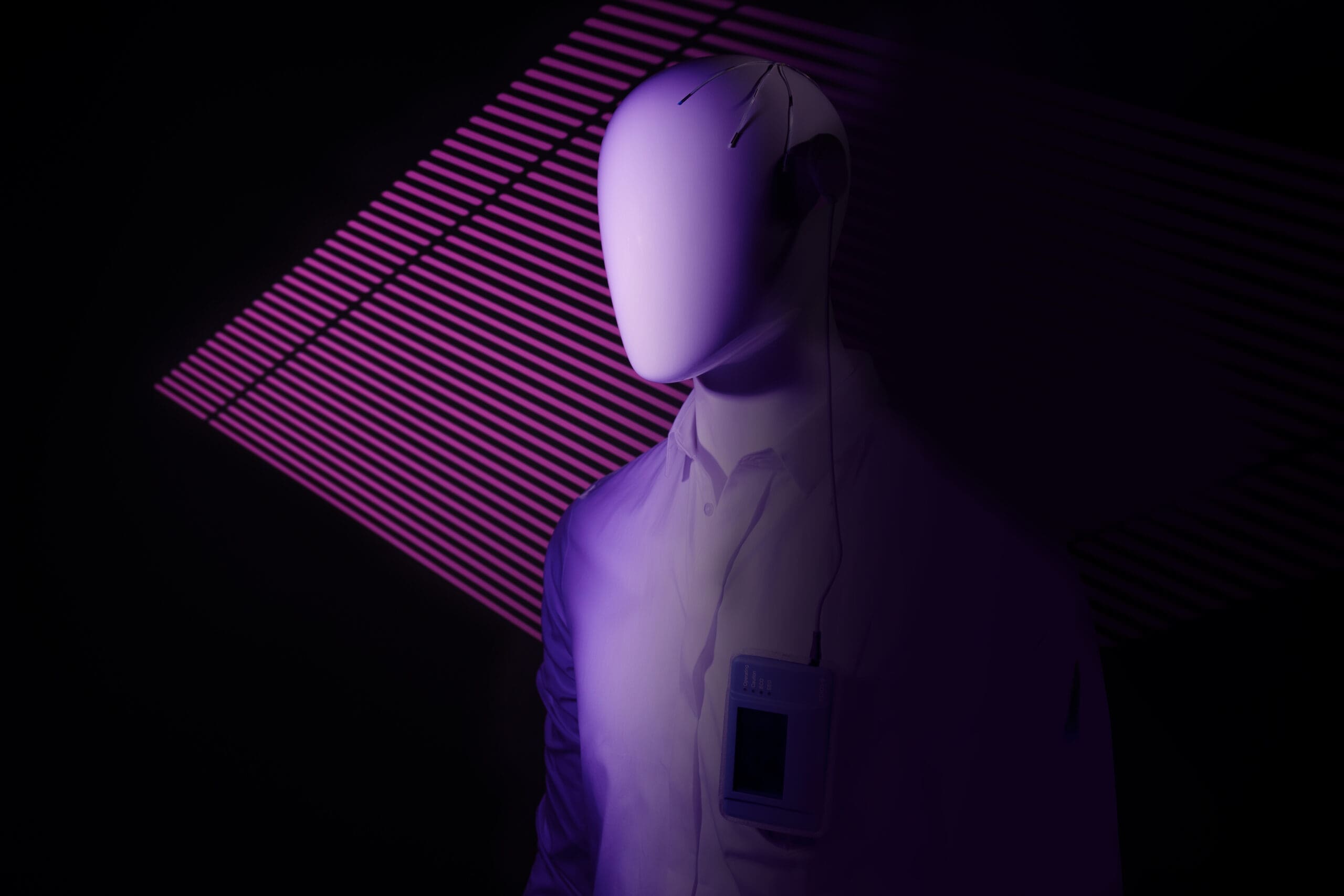
Long-term brain monitoring and therapeutics for personalized management of neuro-disorders
From epilepsy to dementia, long-term brain monitoring has the potential to revolutionize the diagnosis and treatment of neuro-disorders. Wyss Center scientists and engineers are working in collaboration with clinicians, faculty and industry on the development of a minimally invasive, long-term, full coverage brain monitoring platform for use in daily life.
Epios: long-term brain monitoring technology
The problem
Unmet need for long-term brain monitoring in everyday life
Long-term brain activity data could dramatically improve diagnosis and treatment of neuro-disorders, but there is currently no system capable of recording brain activity over months and years. Existing methods of monitoring have limitations. Scalp monitoring with a cap interferes with daily life, the signals can be unstable, and it is only effective for short-term recordings. Intracranial monitoring with electrodes in direct contact with the brain requires hospitalization for invasive cranial surgery and records from only a small area of the brain. These limitations highlight the need for continuous, long-term monitoring of brain activity, with reliable measurements, outside the clinic and with minimal interference in daily life.
Long-term brain data not only has the potential to provide novel insights into brain function but could also open-up new avenues for biomarker discovery and personalized treatment, especially when brain data is combined with other information like heart rate, movement and audio. Neurophysiological monitoring has revolutionized the field of neurosurgery and we believe it can do the same for healthcare in general.
The technology
The Epios system: Sensing electrodes and wireless implant that records brain activity from beneath the scalp over months or years
The Epios system comprises a series of thin leads incorporating sensing electrodes and a miniature implant, inserted beneath the skin. The neural signals are wirelessly transmitted to an external receiver held in place on the skin directly over the implant with a magnet, and from there are conveyed to a wearable data processor and are finally securely stored in the Epios Cloud.
The Epios system can be used continuously, 24 hours a day, at home, at work or on the move.
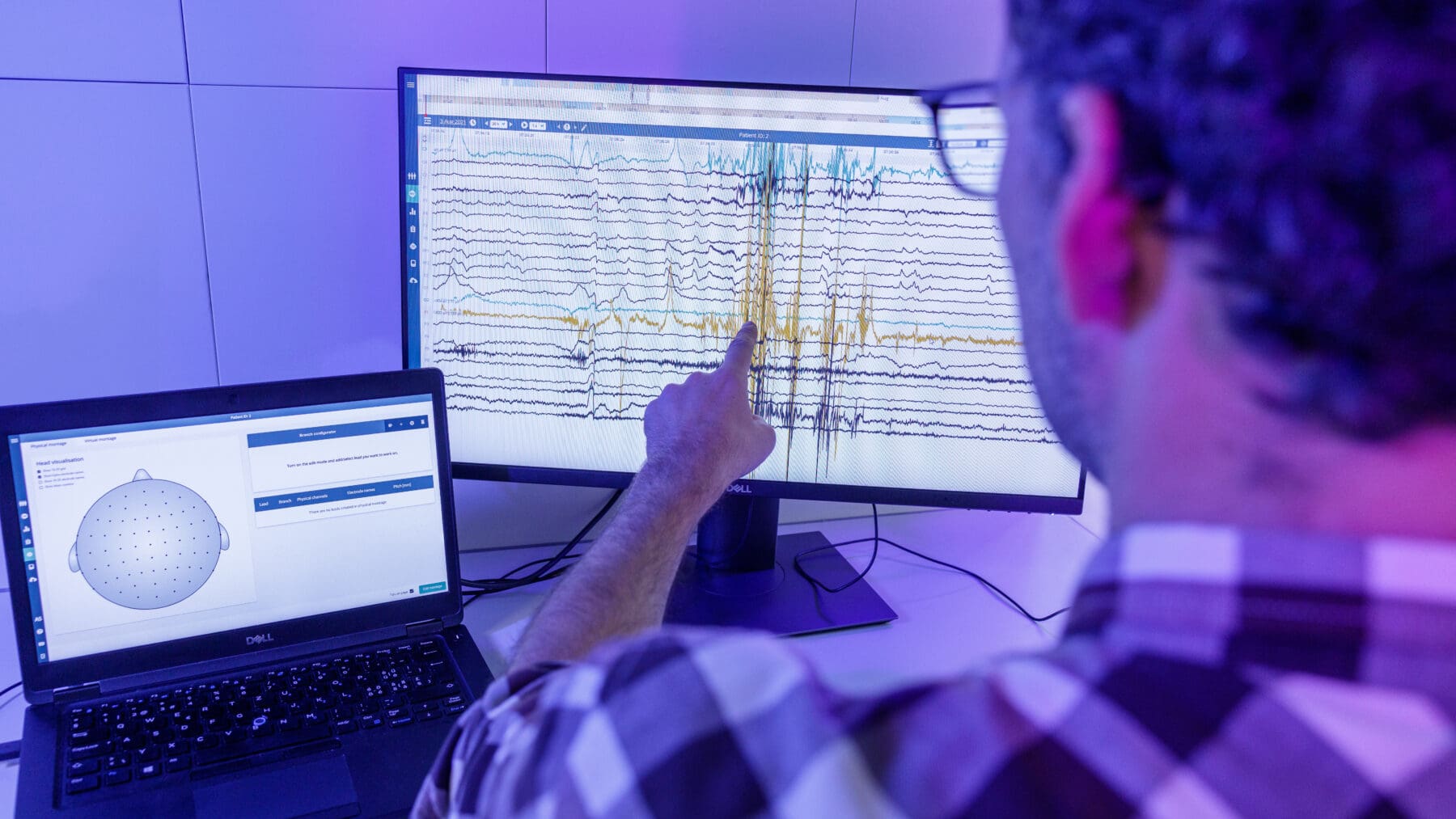
Epios system components
The name Epios stems from the term epi-osteal which means ‘above the bone’.
Epios sensing electrodes
The Epios sensing electrodes (leads) and implant are inserted under the skin with a simple surgical procedure.
This subcutaneous approach offers unobtrusive long-term monitoring, while providing personalization and flexibility in brain coverage. Data can be collected from large areas of the brain or small focus areas depending on clinical needs.
Epios gives continuous insight into the state of the brain before, during and after events such as seizures.
Epios wearable
The Epios wearable is a discrete external device that powers the implant. It also temporarily stores the data received from the implant, and uploads them for permanent storage to the Epios Cloud.
The Epios wearable integrates a heart rate monitor worn against the chest as well as a three-axis accelerometer and audio recorders.
Epios Cloud secure data storage and analysis
The Epios Cloud environment provides remote data storage, visualization, annotation functionalities and enables development of novel analytics.
Recording from multiple areas of the brain over long timescales results in extremely large amounts of data. The Epios Cloud is a bespoke solution for centralized storage and analysis of brain data as well as heart rate, accelerometry and audio data. The software includes embedded state of the art event detection algorithms which can automatically detect and present regions of interest to complement visual screening by clinicians in applications such as epilepsy. It is intended to be used as a medical device, allowing qualified medical practitioners to remotely access and review the data. Epios Cloud has undergone successful usability trials at INSELSPITAL, Bern.
Indications
The first indication of the Epios system is epilepsy, but the Epios platform has multiple potential indications (present and future) that require real-time, long-term monitoring of brain activity. These include movement restoration for people with spinal cord injury and stroke, as well as Parkinson’s disease, sleep disorders, pain management and neuromodulation of brain circuits for mental health applications.
Epilepsy is a chronic disorder that affects 65 million people around the world. It is characterized by recurrent seizures arising from abnormal neuronal activity in the brain. Current medical diagnosis and treatment decisions in epilepsy rely heavily on patient self-reported measures, which have repeatedly been found unreliable. Additionally, often seizures are weeks or months apart, making it almost impossible to monitor them during a single clinic visit or hospital stay.
There is currently no cure for epilepsy and, for one in three people, medication does not completely control seizures. Epilepsy patients do not know when they will have a seizure and they do not always remember a seizure meaning there is a need for an objective way to detect, quantify and communicate seizure occurrences to patients and healthcare providers.
Long-term monitoring of brain activity with Epios during everyday life in seizure patients will help clinicians characterize the type and number of seizures, improve the diagnosis of epilepsy, improve clinical workflow for pre-surgical planning, and provide personalized treatment plans. Long-term epilepsy data could additionally provide the key to seizure forecasting, giving people with epilepsy the power to plan their lives according to the likelihood of having a seizure.
Clinical trials are underway with the Epios early feasibility study in collaboration with the Sleep-wake epilepsy center at the University Hospital of Bern (INSELSPITAL).
Long-term brain monitoring has the potential to inform treatment strategies and help with lifestyle planning for people living with neuro-disorders.
Collaborators
The Wyss Center is working with a network of industrial technology partners for development and manufacture of the Epios components. We are also working alongside academic and clinical partners for pre-clinical and clinical testing, and optimization of the Epios system.
Wyss Center - CSEM collaboration
A demonstration of Swiss non-profit collaboration. Epios brain monitoring technology featured in the Swiss Pavilion at Vivatech 2021 in Paris, Europe’s biggest startup and tech event.
Analyzing Epios brain monitoring data
Ellen van Maren from e-Lab Bern is working with the Wyss Center on the Epios long-term brain monitoring clinical trial. Preliminary results indicate that Epios electrodes can be used to detect and characterize epileptic seizures.
The edge of innovation: Epios™ virtual showcase
Developed with CSEM, this virtual experience features the Wyss Center’s Epios system alongside other technologies that are making a real-world difference. Try it here!

